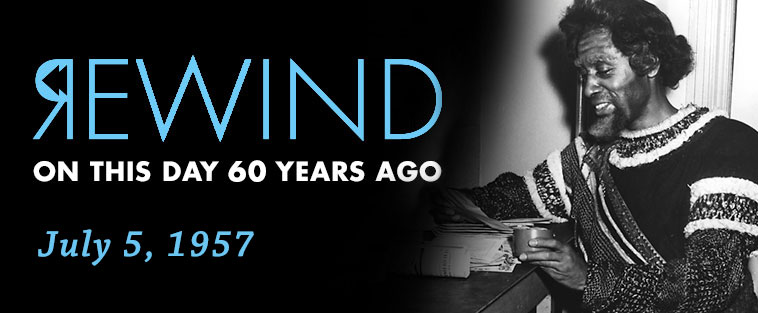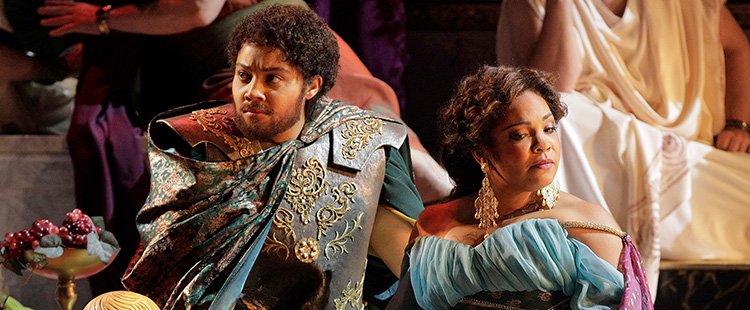At one point in A Night at the Opera, Otis B. Driftwood, the slippery business manager portrayed by Groucho Marx, arrives at an opera house. “Is the opera over yet?” he asks a door attendant. When informed a few minutes remain in the opera, he becomes indignant. “Hey, you,” he chastises the hansom cab driver, “I told you to slow that nag down. On account of you, I nearly heard the opera. Now, once around the park and drive slowly.”
Read Moreopera
Clemency, Forgiveness, and Love: Mozart’s La clemenza di Tito
Opera is constantly being scrutinized for relevance. Plot and characters are placed under the microscope of current political, social, and ethical ideas. Texts, by far, provoke knottier challenges than the music. In an overwhelming majority of cases, the text and social context could be considered time bound, but the music isn’t ensnared in the era of its composition.
La clemenza di Tito is an interesting example of this duality. Mozart’s penultimate opera asks several important questions. A Roman emperor grants clemency—pardon for traitorous actions—as well as forgiveness of personal wrongs. Do these magnanimous acts invite us, in 2022, to reflect on parallels in today’s world?
Read MoreDon Giovanni, the Unknowable, a classical antihero
The story of Don Juan has been around at least since the early 17th century, and his legend has grown to the point that each century has had its say on the subject. Our own, not yet barely passed two decades, is still busy with it. Like the chameleon its eponymous antagonist is, it has been wrapped in many different philosophical and literary garments.
Wolfgang Amadeus Mozart and Lorenzo da Ponte conferred on the subject a seriousness and universality that has insured its permanence in our culture. Like The Marriage of Figaro, its predecessor in the Mozart–da Ponte trilogy, its plot is located at the nexus of sexual and class politics. It portrays burning social issues that our contemporary society is grappling with: the victimization through sexual abuse of women, and the suppression of the rights of the unprivileged at the hands of a more powerful social class.
Read MoreSpecific Gravity: Janai Brugger models the role of presence in floating higher
Many Chicago music lovers will remember their first encounter with Janai Brugger. This writer’s was in 2006 when the young soprano, an area native, made her professional debut at Chicago Opera Theater as a member of the young artist program. She sang the tiny role of the First Witch in Purcell’s Dido and Aeneas. When Brugger stepped forward to deliver her few phrases, there was a palpable energy in the house. Her sound was extraordinary; round and supple, with an ethereal quality that instantly commanded the space. It was one of those rare moments when an emerging artist leaves the listener thinking “That’s the one. That singer is going places.”
Read MoreRewind: July 5, 1957

You always remember your first. As the curtain rose on 1955, the Metropolitan Opera presented its first African-American cast members: contralto Marian Anderson as Ulrica in Verdi’s Un ballo in maschera and, three weeks later, baritone Robert McFerrin as Amonasro in Verdi’s Aida. McFerrin was subsequently specially chosen by composer/conductor Virgil Thomson to breathe life into his Five Songs from William Blake—both the singer’s Ravinia and Chicago Symphony Orchestra debuts—on a program of Thomson’s works at Ravinia on July 5, 1957.
Marking Milestones: From Rosina to Ravinia, Danielle de Niese revels in taking rewarding risks
When the New York Times Magazine profiled Danielle de Niese in 2009, a headline writer astutely dubbed her “opera’s coolest soprano.” And the moniker has stuck.





